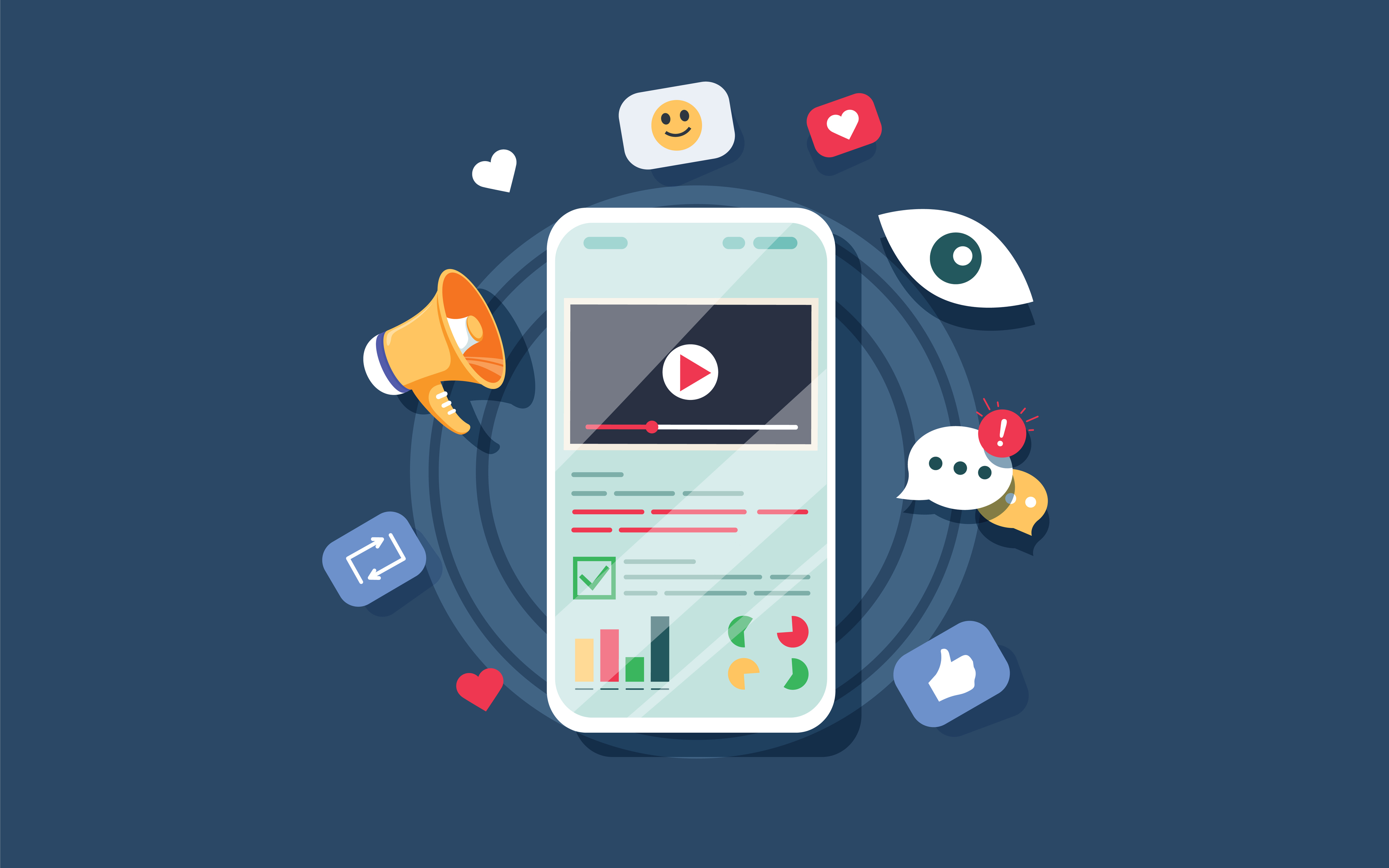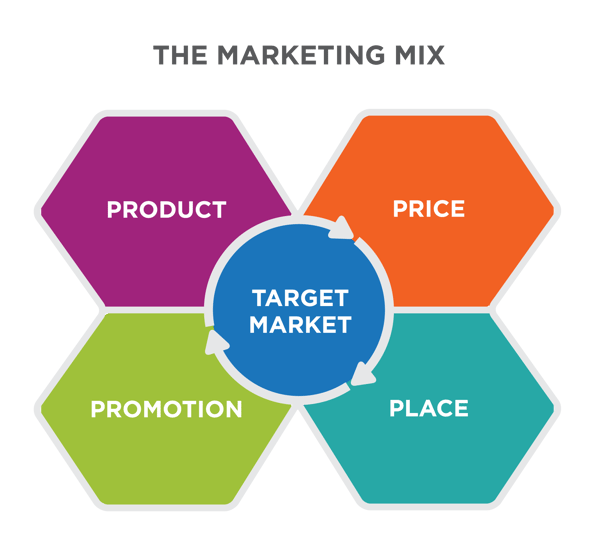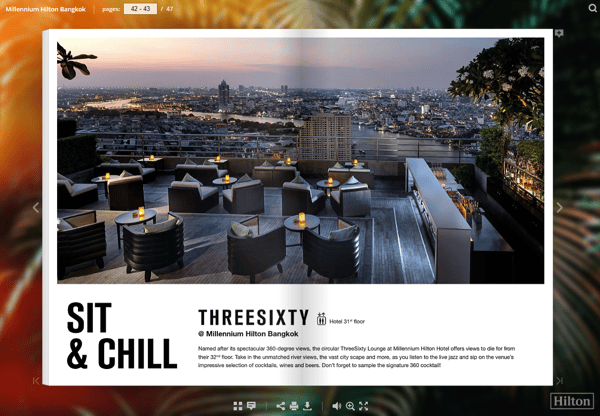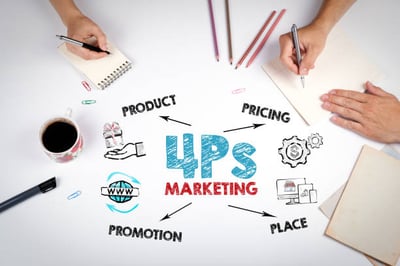October 25, 2019
 by Anna Konovalova / October 25, 2019
by Anna Konovalova / October 25, 2019

You've come up with a fresh business idea, created a new product, or rebranded an old one.
Great, you’re on the right track. However, for people to know about your brand, you have to take the next step: spread the word about your products or services to reach a wider audience and build brand awareness.
That’s where promotional marketing comes into play. You may have heard about it many times, but what is it exactly?
Promotional marketing is designed to spread knowledge about a brand, product, or service to a wide audience with the aim of increasing brand awareness and sales. Its purpose is to inspire a potential customer to take action.
Promotional marketing is part of the famous marketing mix that refers to a group of tactics that a company chooses to take a product or service to market.
 Source: Lumen Learning
Source: Lumen Learning
So, all activities that involve communicating with prospects and customers about your product, its benefits, and features, are promotional marketing. Mostly, it’s about raising awareness through different marketing and sales channels to increase sales, as well as create and foster brand loyalty.
Let’s take a closer look at the main goals of promotional marketing.
When you’ve defined the goals you want to achieve with your promotional marketing, it’s high time to come up with a good strategy. Follow these six steps to help develop your strategy.
You may know your target audience as well as yourself, or you may just be getting acquainted with it. In any case, the first step to creating a promotional strategy is to sit and think about the people you will be promoting your products and services to.
Who are you selling to and what are their needs and interests? Once you figure it out, your promotional campaign can be really useful and helpful to your audience – and successful for your business.
Decide how much of your resources you’re willing to invest. The scope of your marketing activities will depend on your set budget.
Research where your audience works and entertains itself: Facebook, Twitter, LinkedIn, niche forums, and websites. Don’t waste your marketing efforts on all the channels; go where your potential and current clients are. They will be glad to see you there.
Promotional marketing can’t go alone; it’s always part of the bigger marketing mix. Develop your four marketing pillars, which refer to product, price, place, and promotion; you’ll have everything you need for your successful marketing campaign.
After you’ve implemented your promotional marketing strategy, don’t forget to gather and measure the results of your campaign. It will help you know exactly what works and what doesn’t, so you can make the necessary adjustments to achieve even better results.
To get you started, here are a few ideas to help boost your next promotional marketing campaign's success.
Contests are often used as a promotional strategy – you can run them yourself or become a sponsor. Many contests don't even require a purchase. The main idea is to promote your brand and put your logo and name out there rather than make money. Obviously, all of your clients will enjoy your company giveaways and contests.
Content marketing is one of the most famous marketing strategies out there; it can be a great foundation for your promotional marketing activities.
With a little effort, any company can make mobile-friendly and great-looking digital ebooks, brochures, or newsletters with the right AI content generators. What’s more, they can brand them by adding their logos, custom backgrounds, and color palettes.
Such content is a great way to create brand awareness, tell audiences about a company’s values and goals, and inform them about new services and products.
 Source: FlippingBook
Source: FlippingBook
Social media helps you connect with your audience on a personal level in a more relaxed environment. This is direct marketing at its best because social networks connect you with a world of potential and existing customers and allow you to start loyal and friendly communication.
Product giveaways, samples, and demos are methods often used by companies to introduce new products. In our digital era, engaging newsletters and holiday-themed email campaigns offering free coupons and bonuses can make your promotional campaigns very successful as well.
Upselling is encouraging the purchase of anything additional that would make the primary purchase more expensive with an upgrade or premium.
You can create special email campaigns where you offer upgrades and more advanced products for the people who show interest in your business.
Now you're equipped with essential knowledge about promotional marketing and how to do it right. Remember, the most successful promotions are those that are truly beneficial to both you and your prospects and clients.
Why is that? Because if your audience feels that you are offering products and services that can help them achieve their goals and solve their problems, they will be happy to act on your offer. So, if you want to raise your brand awareness and increase sales, then promotional marketing is the right path forward.
Get started with promotional marketing today and see what other types of marketing can help you grow your overall marketing prowess and strategy. Learn more through our marketing hub, chock full of over 50 useful resources to boost your knowledge – free, only on G2.
Anna Konovalova is a Content Marketer and Translator at FlippingBook, a company that provides software and cloud service for creating professional online documents in a fast and easy way. When Anna isn’t writing, she enjoys going to the theater, listening to music, and finding inspiration in the world around her.
For a long time, the marketing efforts of major brands had one big thing in common: they were...
 by Andrej Kovačević
by Andrej Kovačević
Marketing a business goes beyond advertising.
 by AbdulGaniy Shehu
by AbdulGaniy Shehu
In marketing, awareness is not the goal; advocacy is.
 by Jennifer Kim
by Jennifer Kim
For a long time, the marketing efforts of major brands had one big thing in common: they were...
 by Andrej Kovačević
by Andrej Kovačević
Marketing a business goes beyond advertising.
 by AbdulGaniy Shehu
by AbdulGaniy Shehu


